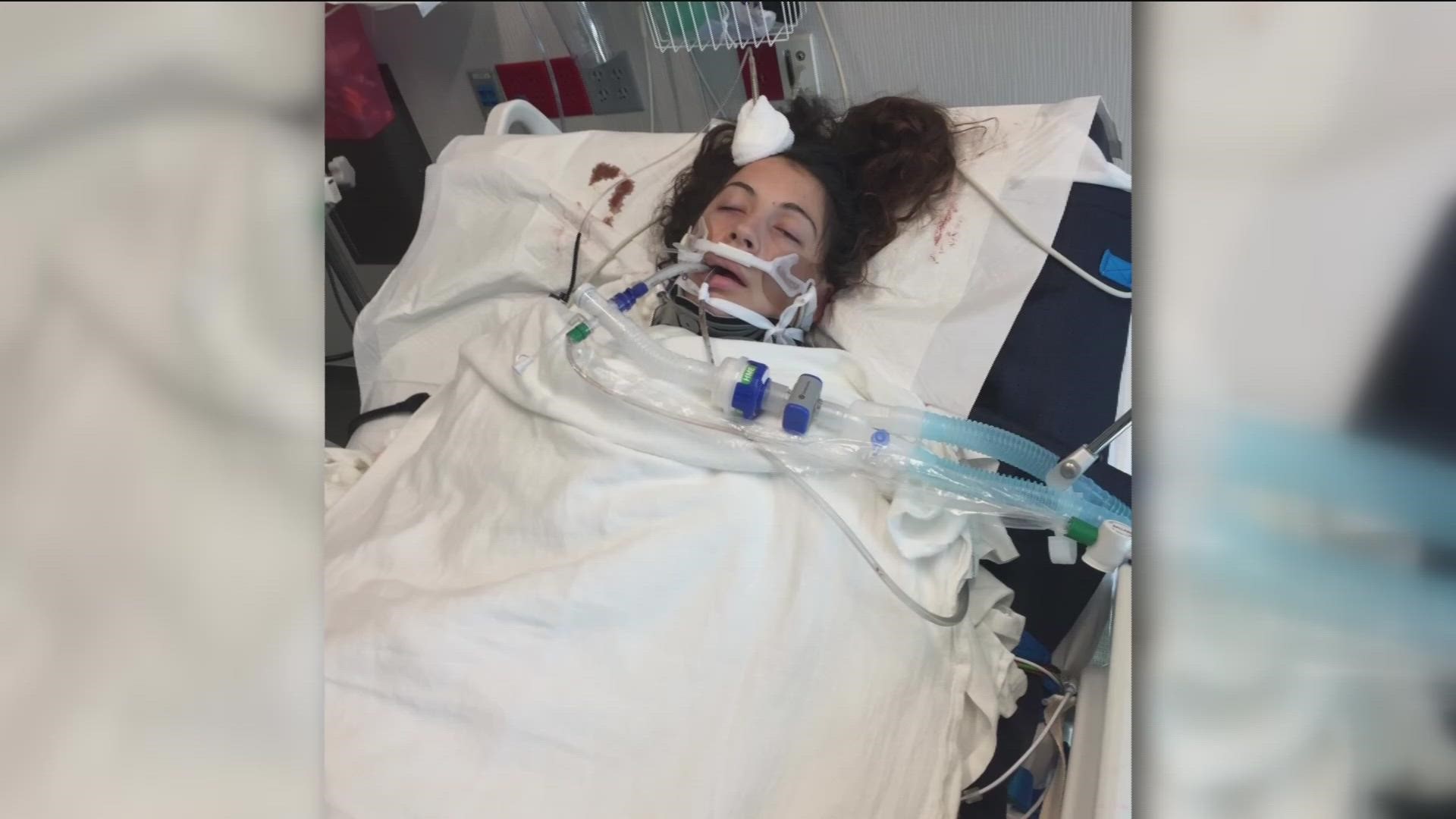TOLEDO, Ohio — In early January, Ohio Gov. Mike DeWine signed a bill into law making distracted driving a primary offense in the state.
Drivers can still swipe to answer a call, but texting or dialing a number could mean a ticket and a fine. The goal of Senate Bill 288, which goes into effect in April, aims to lessen accidents and deaths from distracted driving.
The law is welcome news to Maelle Boutrand, a former University of Toledo student who was struck by a distracted driver while out for a run near Dorr Street and South Towerview Boulevard in October 2020.
"I was like, where am I? What just happened? What just happened?" Boutrand said of waking up in the hospital after a three-day coma with a triple skull fracture and a broken clavicle and ribs. "I woke up and was putting shoes on, going on a run and next thing I knew it was all dark."
Boutrand said the driver was going about 45 mph.
Turning your focus from the road isn't worth it, since it only takes a second to make a mistake that could change someone's life forever.
"In that instant of looking at a text message, watching a video, or answering an email, something bad can happen in front of you and you won't be able to stop," Ohio State Highway Patrol Sgt. Ryan Purpura said. "It can cause a crash and hurt yourself or somebody else."
Doctors didn't think Boutrand was going to make it, but she proved them wrong.
"Physically speaking, I right away knew I was affected by it when I had to learn how to brush my own teeth," she said. "My mom was teaching me how to shower and other things like that. It really makes you vulnerable to the outside world because you can't do anything on your own."
Since 2018, Ohio has seen more than 60,000 distracting driving-related crashes, 2,617 of which happened in Lucas County, according to OSHP.
"Obviously, that's far too many and it's probably really under-reported numbers," Purpura said. "There's probably way more than that. You know every day you go down the road and see people on their cell phones, texting while they're driving and it's dangerous."
Boutrand, now a nurse, wants people to know her story and understand the impacts of distracted driving.
She has been given a second chance at life and said the accident made her realize she wanted to work with trauma patients.
"I absolutely love looking at them in their eyes and telling them 'it's going to be okay,'" Boutrand said. "You're somewhere where we're going to take care of you. You have no idea of what just happened, but we're here for you."

